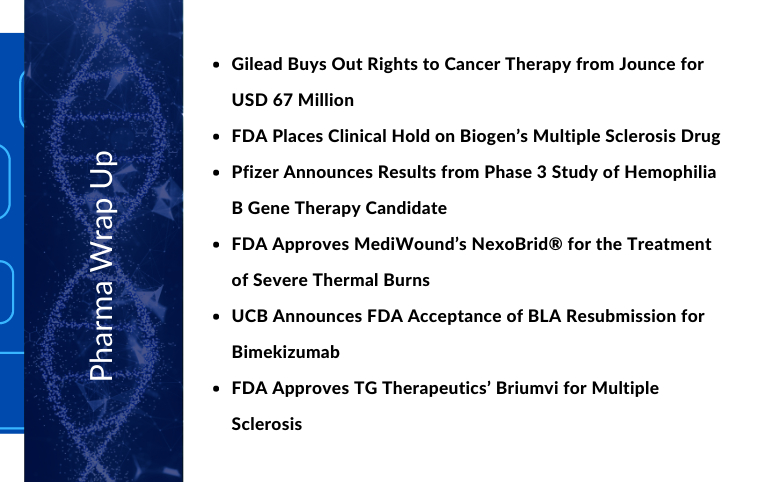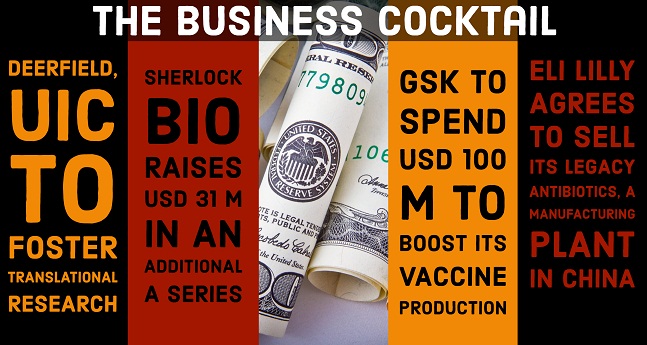Deerfield and Dana-Farber Establish Links in USD 130 Million Cancer Research Deal
Deerfield Management has entered into a research agreement with Dana-Farber Cancer Institute to fuel the development of therapeutics and diagnostics for cancer. The move came not long after healthcare investor giant Deerfield Management has forged a partnership to create the Center for Protein Degradation, investing worth USD 80 million.
In the pharmaceutical and healthcare domain, where discoveries take ample time, and success rates are unpredictable, translational research helps in ensuring better and innovative discoveries that act as the fuel for revolutionizing breakthroughs in the domain.
For the same reason, Deerfield has decided to invest USD 130 Million over the next ten years at Dana-Farber. The funding will help to create and launch Riverway Discoveries. Through Riverway, Deerfield plans to fund selected projects and provide operational support. The committee will constitute members from Dana-Farber and Deerfield to consider proposals from Dana-Farber researchers later this month.
Breyanzi, BMS’ Blood Cancer CAR-T Therapy Receives FDA Nod
The US Food and Drug Administration (FDA) has approved Bristol Myers Squibb’s (BMS) CAR T-cell therapy Breyanzi, for the treatment of adult patients with relapsed or refractory large B-cell lymphoma (LBCL) after two or more lines of systemic therapy, including Diffuse large B-cell lymphoma (DLBCL).
Breyanzi targets CD19, a protein that is highly expressed on the surface of B cells, which remain there following the transformation of these cells from normal to malignant. As per the company, their one-time CAR-T cell therapy will be crucial in clinical practice in relapsed or refractory large B-cell lymphoma cases.
Breyanzi will come with a price tag of USD 410,300 wholesale price, said the company, justifying it after taking into consideration several factors including medical and clinical value, patient value, and societal value.
TG Therapeutics Wins FDA Nod for Ukoniq for Marginal Zone Lymphoma and Follicular Lymphoma
About time that the PI3K cancer drug portfolio has another member along with Gilead’s Zydelig, Verastem Oncology’s Copiktra, and Bayer’s Aliqopa. TG Therapeutics has announced the U.S. FDA Ukoniq (umbralisib) for the treatment of adult patients with relapsed or refractory marginal zone lymphoma (MZL) who have received at least one prior anti-CD20 based regimen and adult patients with relapsed or refractory follicular lymphoma (FL) who have received at least three prior lines of systemic therapy.
What makes it interesting to note is Ukoniq is the first and only, oral, once-daily, inhibitor of phosphoinositide 3 kinase (PI3K) delta and casein kinase 1 (CK1) epsilon, and maybe this is what makes it costlier than the others.
Ukoniq’s approval was backed by Phase 2 UNITY-NHL Trial (NCT02793583). The drug received priority review for the MZL. Furthermore, it was also granted Breakthrough Therapy Designation (BTD) for the treatment of MZL and orphan drug designation (ODD) for the treatment of MZL and FL.
European Marketing Authorisation to ViiV Healthcare’s Rukobia for Multidrug-resistant HIV
A lot has been achieved in the HIV treatment market sphere. Earlier, the life expectancy of a person with HIV was only one-two years from the time of diagnosis, however, the collaboration of the pharma companies and the scientific community have made strides of improvement in the domain. Today, the domain has effective combination ART regimens that help HIV patients have a near-normal life expectancy.
Recently, the European Union blessed ViiV Healthcare’s Rukobia for the treatment of patients with HIV that have developed resistance to other antiretroviral therapy (ART). The nod came a few months after the CHMP opinionated positively for the same.
Rukobia is the first-in-class HIV attachment inhibitor. It has been recommended as an add-on therapy to other ARTs in adults who can not be given any other suppressive antiviral regimen. The therapy scored the FDA-approval last year in the same domain acting as hope for the small subset of people with multi-drug resistant HIV at the risk of disease progression.



